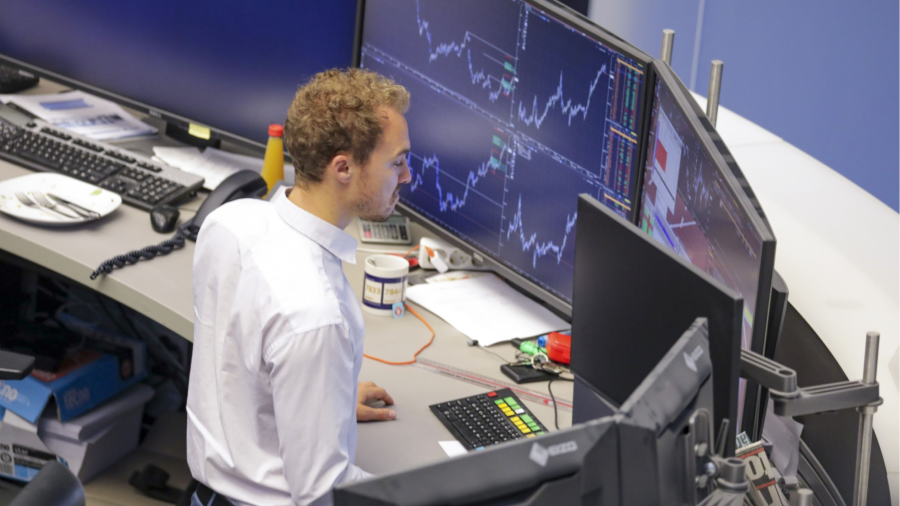[ad_1]
US and European stocks fell for a third straight day on Tuesday, as hawkish rhetoric from last week’s economic conference in Jackson Hole fuelled expectations of higher interest rates.
The broad S&P 500 had fallen 1.4 per cent by mid-afternoon in New York, while the technology-heavy Nasdaq Composite had dropped 1.6 per cent.
In Europe, the regional Stoxx 600 gauge lost 0.7 per cent, while Germany’s Dax rose 0.5 per cent, trimming earlier losses. London’s FTSE 100 fell 0.9 per cent following a one-day holiday.
Those moves followed two days of weakness in global equities, after central bankers reaffirmed their commitment to tackling inflation at an annual summit in Jackson Hole, Wyoming, even as the prospect of tighter monetary policy threatens to induce a protracted economic slowdown.
In a speech on Friday, Federal Reserve chair Jay Powell said the US central bank “must keep at it until the job is done”, and that reducing inflation would probably result in lower economic growth for a “sustained period”.
Signalling expectations of further tumult in stock markets, the Vix volatility index — known as Wall Street’s “fear gauge” — registered a reading of 27.69 on Tuesday, its highest level since mid-July.
The index could rise further, warned Nicholas Colas, co-founder of DataTrek Research. “US equities do not reflect sufficient fear given current macro and micro uncertainties,” he said.
The two-year US Treasury yield, which is sensitive to interest rate expectations, rose to 3.497 per cent on Tuesday, a 15-year high.
Neel Kashkari, president of the Federal Reserve Bank of Minneapolis, told Bloomberg on Monday he was “happy” to see markets lose ground following Powell’s speech because it indicated investors had taken the Fed’s commitment to bring inflation back to 2 per cent seriously.
Oil prices plunged on Tuesday, amid persistent concerns a slowdown in big economies would weaken global fuel demand and news that Iraq’s oil output had been unaffected by days of violence in Baghdad.
Brent crude was down nearly 6 per cent in afternoon trading at $99.25 a barrel. The international benchmark hit a one-month-high of $105.48 a barrel on Monday following unrest in Iraq, the Opec cartel’s second-largest crude exporter. US oil prices were down 5.4 per cent on Tuesday to $91.80 a barrel.
“Oil prices started to fall during European hours driven by comments from Iraq’s state oil marketer Somo saying oil exports have not been impacted from the political crisis,” said Giovanni Staunovo, an oil analyst at UBS.
Robust supplies from Russia despite western sanctions on the country and the possibility of a nuclear deal with Iran are also putting pressure on crude prices. Saudi Arabia, Opec’s de facto leader, warned last week that the cartel could cut crude production in a bid to stabilise a market it said was being undermined by “very thin liquidity and extreme price volatility”. Opec meets next week to decide oil output policy.
Investors will scrutinise data in the coming days for further clues about the health of the global economy and the future path of monetary policy. Economists polled by Reuters expect eurozone inflation to have reached 9 per cent in August when figures are released on Wednesday, up from 8.9 per cent in July.
US jobs numbers on Friday may offer insights into the tightness of the labour market in the world’s biggest economy. Economists polled by Reuters expect employers to have added 300,000 jobs in August, down from 528,000 in July.
[ad_2]
Image and article originally from www.ft.com. Read the original article here.

